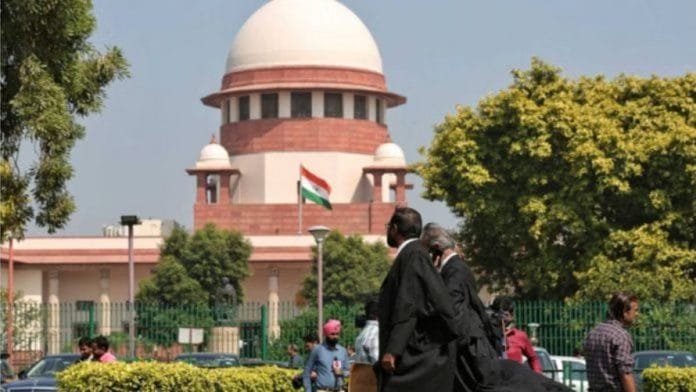Thank you dear subscribers, we are overwhelmed with your response.
Your Turn is a unique section from ThePrint featuring points of view from its subscribers. If you are a subscriber, have a point of view, please send it to us. If not, do subscribe here: https://theprint.in/
If there is one institution in the State of India that brooks no accountability is Judiciary. Unfortunately, it is one of the most powerful institutions, yet there never has been scrutiny of its functioning and no critique of its evolution since 1947. It merrily continues to function in the same manner as it used to prior to 1947.
Resulting in the language of the courts being English, only recently the orders have started being given in Local language. The SOP seems to be from a bygone era. The judges merrily agree to postponement/ stays/injunctions at the drop of the hat. The first of the judgements delivered, are delivered after 5 years – 10 years and sometimes more. With appeals to higher courts the final judgements in the smallest/simplest of cases takes eons. The huge pile up of cases in all the Courts across the country does no service to the Constitution and most important the citizens of this country.
It is no case that Judiciary has to be made accountable. After all it is the tax payer’s money that pays for its upkeep.
My Remedy
District Courts: Every Judge in the District Court (in all its form) should be an Elected Judge. Elected by the people of the district and elected for a limited period of 4-5 years. After this the Judges would be up for re-election.
State High Courts: The Selection of High Court Judges could be a 2-step process. 1. The Judges could be selected by a panel of 4 members made up of State Chief Minister, State High Court CJ, State Law Minister, and CJ/Senior Most Judge of a neighbouring State. 2. There should be a confirmation hearing of the selected State Judge, who should be confirmed by the State Legislature. Here the tenure of the Judges could be between 5-7 years.
Supreme Court: The selection of the Judges of the Supreme Court could be again a 2-step process. 1. Judges could be selected by a Panel of 4 members made up of the Vice President of India, The Law Minister of India, The CJ of the Supreme Court and the Senior most CJ/Judge of any of the states of India.2…There should be a confirmation hearing of the Selected Judge, who should be confirmed by the Parliament. The Tenure of the Judge could be 7-9 years.
The judges to be selected in the Higher Courts could be from the existing pool of Judges in the country or totally a new person.
The state high courts should be manned by Judges with knowledge of the Local Language.
During the confirmation, the Judges should be asked about his/her personal beliefs, his/her judicial beliefs & his/her political beliefs.
There should be a minimum of 2 High Courts in every state. Not Benches, but two independent High Courts. The Larger states like Maharashtra, UP, MP etc should have at least 3 independent High Courts.
There should be at least 2 Supreme Courts. One in the North of the India and one in the South of India.
A separate Supreme should be formed to deal with only Cases related to the Constitution. Only relating to laws enacted by State Legislature and the Parliament.
These pieces are being published as they have been received – they have not been edited/fact-checked by ThePrint.


